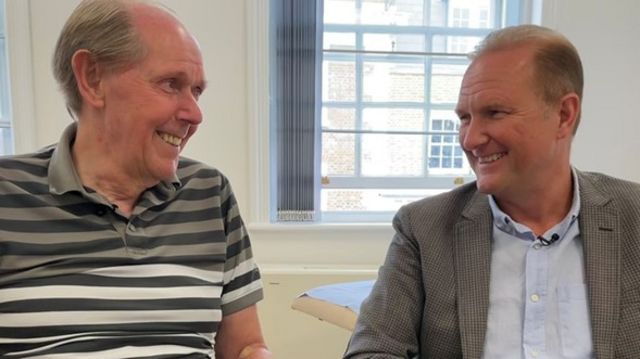Clinical trials of the new drug donanemab have shown that it can slow cognitive decline in humans by about one-third, making it a potential treatment for Alzheimer’s disease, one of the most common forms of dementia. The findings, published in JAMA, are based on studies conducted worldwide over an 18-month period.
One of the volunteers is 80-year-old Mike Collie from the UK. Every month, he receives an injection of a new drug in a London clinic, and according to Mike himself, he is “one of the happiest people you will ever meet. The UK’s Medicines and Healthcare products Regulatory Agency is also considering the drug for use in the National Health Service (NHS).
In January, the U.S. Food and Drug Administration (FDA) rejected donanemab’s application for accelerated approval due to safety concerns. However, in light of the studies conducted, the manufacturer now hopes to receive FDA approval by the end of the year. 
It is important to remember that the drug only helps in the early stages of Alzheimer’s disease and is not suitable for other types of dementia, such as vascular dementia. The new drug is designed to remove amyloid proteins, which are believed to be the main cause of Alzheimer’s disease. Amyloids can accumulate in various organs, sometimes leading to pathological tissue changes. In the case of the brain, amyloids cover the extensions of neurons that transmit signals from one nerve cell to another, leading to dysfunction.
Shortly before Mike was offered the opportunity to participate in the clinical trials for donanemab, his family and he began to notice that he was having difficulty making decisions and that Mike’s memory was failing. His son Mark says that it was quite difficult to observe these changes, but once he started taking the medication, his condition stopped deteriorating. In an interview with the BBC, Mike himself stated that “he feels more confident every day”. 
Donanemab, manufactured by Eli Lilly, works on the same principle as lecanemab, developed by Eisai and Biogen. This drug, which slows the progression of the disease, has already been approved for production. And although the new drug is called very promising, it does not completely cure Alzheimer’s disease, and it can cause quite serious side effects. One of the main manifestations that occurred in every third Donanemab volunteer was the development of cerebral edema against the background of taking the drug. Most of the patients survived, but at least two people died from this edema (possibly three, but the cause of death of the third person is not certain). Another similar drug, aducanumab, has been completely banned by European regulators due to the high risks involved and the lack of convincing evidence of its efficacy.
In the case of donepezil, 1,736 people between the ages of 60 and 85 with early signs of Alzheimer’s disease participated in clinical trials. Half of these people received monthly injections of the drug for a year and a half, while the other half received a placebo. The test results showed this: Amyloid is only one component of the complex picture of Alzheimer’s disease, experts point out, so it is unknown how effective the drug will be in the long term. The drug’s effect may seem modest, doctors admit. However, the results can be seen as further confirmation that removing amyloid from neuronal connections can significantly alter the course of Alzheimer’s disease and help people with the disease – provided it is diagnosed and treated in time.
“It is amazing that these results are being published in full today. We have waited a long time for treatments for Alzheimer’s disease, so it is very encouraging to see this field continuing to develop rapidly,” said Professor Giles Hardingem of the British Institute of Dementia Research. “We are on the brink of exciting and significant changes in the quality of care for patients who have dementia or are at risk of developing it.”
“This is truly a turning point in the fight against Alzheimer’s, and science is proving that this disease can be slowed,” said the Alzheimer’s Society charity. The cost of an annual course of Lecanemab in the USA, where it is licensed, is about 27.5 thousand dollars. It is still unclear how much Donanemab will cost, but experts believe that having two drugs will help reduce the price.

